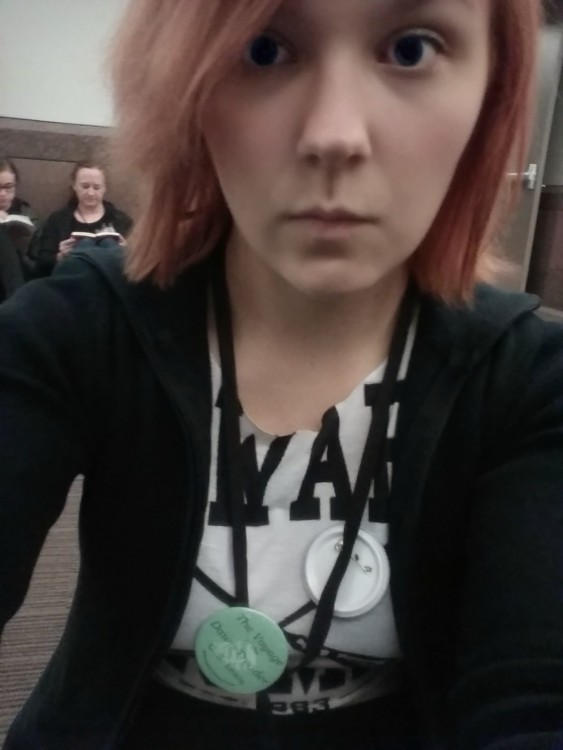The 5 Most Hurtful Things I've Heard as Someone With an Invisible Illness
These are the most hurtful sentences I’ve heard as someone with an invisible illness — postural orthostatic tachycardia syndrome (POTS).
1. “When you get to college, you’ll drown.”
Why this is hurtful: There’s a lot I could say to the person who said this. I could tell that he believed his college education surpassed my knowledge of my own condition. I would like to inform him that I am in the second semester of my second year at university and am already at a senior class rank, with a 4.0 GPA and graduating with the honors program at my school. I guess that could be considered drowning in success. I want him to know that his words did not inspire me to work harder or to “overcome” my condition, but rather that I was capable of college-level work the whole time, if he had only listened to me. Threatening disabled students with the idea of failure is not constructive — it’s a lack of empathy.
2. “You are a liar.”
Why this is hurtful: I heard several insults from this one person. I was called lazy when I had trouble doing physical work, and she insulted my body when I was thin from hospital visits and when I went back to a normal weight in recovery. But being called a liar was the lowest blow. She never tried to understand anything about my condition or her own daughter’s condition, for that matter. This blatant disregard for my, or anyone’s, condition shows a lack of respect — a tasteless act that shows she will never believe I am in pain, no matter how many doctors tell her so.

3. “Just put her in therapy.”
Why this is hurtful: Many doctors didn’t know what POTS is, which demonstrates a problem with education about dysautonomia rather than a direct problem with those doctors. However, many of them suggested I see a therapist for depression while I cried through the pain in a hospital bed for the third time in two weeks. By doing this, they caused further physical, emotional and mental pain, which goes against the Hippocratic Oath to “do no harm to patients.” They suggested that my problem was not real, but rather something I would fake because I was depressed — as if someone would willingly be confined to a couch due to physical pain. Just because you as a doctor do not understand what is going on, that does not give you the right not to treat a patient.
4. “You’re not disabled, you just take medication.”
Why this is hurtful: The only response I have been able to come up with after a year of hearing this comment is “How dare you?” Just because you only see someone on their good days does not mean they don’t suffer when you are not around.
5. “This is all in your head.”
Why this is hurtful: Following on the note from before — how dare anyone assume someone’s pain isn’t real simply because they cannot find an answer? There have been stories on The Mighty about this experience, because the comment is so dangerous. By telling anyone their pain is all in their head, it shows they don’t care enough about another person to understand their condition. After years of hearing this statement, some people will begin to wonder if they are faking it, because so many people seem to think they are. You are not faking anything; they are faking compassion.
Yes, these words hurt. Some of these statements are from years ago, but they stuck with me because people sometimes fail to see how their view of disabilities will impact others. Do not dwell on what they say, no matter how deeply they hurt you. When people say something hurtful about your disability, remember that they are conditioned to view disabilities as purely physical, and if you “don’t look sick” they automatically assume you are healthy. Rally yourself to change that view. Remember that not everyone can feel the limitations you experience, and the best way is to inform them.
If hurtful comments continue, remember that not everyone in life is meant to be around you, and choose to surround yourself with people who do make an effort. There are plenty of people who have been supportive of me and made an effort to understand what I go through — even people whose comments made this list. Those people do exist, and once you find them, they are the most irreplaceable treasures.
The Mighty is asking the following: Create a list-style story of your choice in regards to disability, disease or illness. It can be lighthearted and funny or more serious — whatever inspires you. Be sure to include at least one intro paragraph for your list. If you’d like to participate, please send a blog post to community@themighty.com. Please include a photo for the piece, a photo of yourself and 1-2 sentence bio. Check out our Submit a Story page for more about our submission guidelines.
